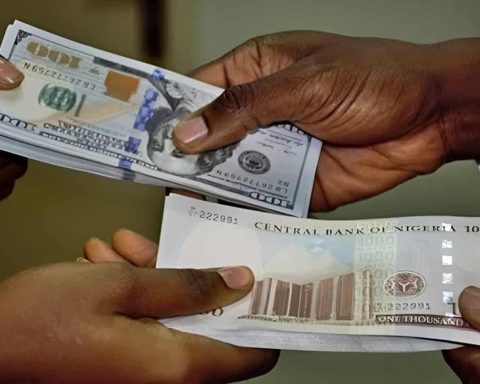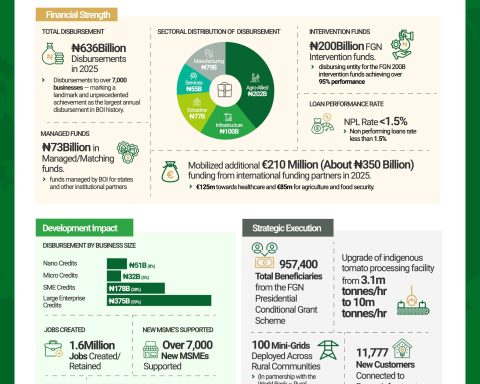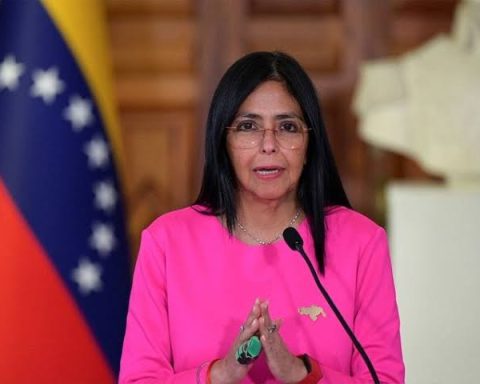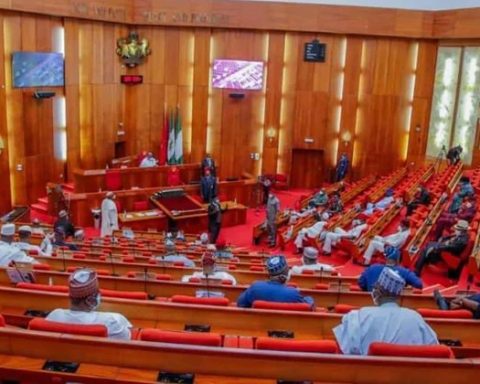Nigeria’s money supply (M2) declined to N117.5 trillion in June 2025, marking a 1.2 per cent month-on-month (MoM) drop from N118.9 trillion in May 2025.
This is according to the latest data from the Central Bank of Nigeria (CBN).
Join our WhatsApp ChannelThis represents the second consecutive monthly decline since April 2025, reflecting tightening liquidity conditions amid the CBN’s monetary policy stance.
According to the CBN data, Quasi Money (savings/time deposits) fell by 1.27 per cent month-on-month (MoM) to N77.6 trillion in June.
Currency Outside Banks (COB) dropped by 2.17 per cent MoM to N4.5 trillion. The CBN data also shows narrow money (M1) declined by 1.23 per cent MoM to N39.9 trillion, with demand deposits down 0.84 per cent to N35.4 trillion.
The report further indicated that government credit dropped by 4.76 per cent MoM to N23.7 trillion, while private sector credit dropped 2.18 per cent MoM to N76.13 trillion. Also, the net domestic credit declined 2.9 per cent MoM to N99.9 trillion.
READ ALSO: Inflation: Concerns About CBN’s Monetary Policy Impact As 91% Of Naira Outside Banks
Analysis of the money supply trend shows that it peaked at N119.1 trillion in April 2025 before consecutive declines in May (–0.23 per cent to N118.99 trillion) and June.
Analysts attributed the contraction in money supply to the CBN’s tight monetary policy (such as holding the MPR at 27.5 per cent, which is considered high) and liquidity management efforts (Open Market Operations auctions).
Broader Economic Implications
The drop aligns with reduced fiscal borrowing and rising public debt (N149.39 trillion as of June 2025, according to the Debt Management Office), highlighting fiscal pressures.
Capital inflows remain dominated by short-term “hot money” (90% of Q1 2025’s $5.64 billion inflows), raising concerns about sustainability. Recent data released by the National Bureau of Statistics showed that Nigeria’s total capital inflows rose year-on-year by 67 per cent to $5.64 billion in Q1 2025 from the $3.38 billion posted in the same period of 2024. The NBS report revealed that over 90 per cent of these foreign inflows came as portfolio investment, also known as “hot money”, short-term speculative funds seeking high returns.
READ ALSO: CBN Withdraws N1.335trn From Circulation, Money Supply Hits N107.1trn
Analysts at CardinalStone projected increased external borrowing in the second half of 2025 to fund Nigeria’s N13.08 trillion budget deficit. This may influence future money supply dynamics. The CBN’s balancing act between inflation control and stimulating growth continues to shape liquidity trends.
Victor Ezeja is a passionate journalist with seven years of experience writing on economy, politics and energy. He holds a Master's degree in Mass Communication.















